In her recent State of the Union address, EU president Ursula von der Leyen called for a "European renovation wave" that would make the EU a "leader in the circular economy". To that end, 37% of NextGenerationEU funding will be spent on Green Deal objectives; 30% of that funding will be raised through green bonds. Von der Leyen further noted that the European Commission will propose an emission reduction target of 55% by 2030, having previously set a reduction target of 40%.
The European recycling industry has reacted positively to these plans, while demanding more specific policies. The European Waste Management Association (FEAD) notes that its members – private waste management companies - are ready to take on the challenge and welcomes the more ambitious EU climate plans. At the same time, FEAD president Peter Kurth makes clear that concrete actions are necessary "to ensure a very much needed shock on demand for recyclates: mandatory recycled content rules in certain key products, while keeping positive waste export rules to allow the offer in recyclates to meet the demand where it is, ensuring proper functioning of secondary raw materials markets."
The European Recycling Industries Confederation (EuRIC) shares a similar view. EuRIC supports the measures announced by Von der Leyen, noting that the use of secondary raw materials in manufacturing needs to be incentivised to speed up the circular transition and meet the targets of the European Green Deal. Additionally, EuRIC president Cinzia Vezzosi argues that "time has come to speed the adaptation of the EU’s regulatory framework to create a well-functioning market for secondary materials and streamline requirements hampering circular value chains, keeping in mind the global nature of commodity markets which are key to balance supply and demand." Finally, Vezzosi calls for measures ensuring that products which cannot be recycled at the end of their lifecycle do not find their way to the European internal market.
